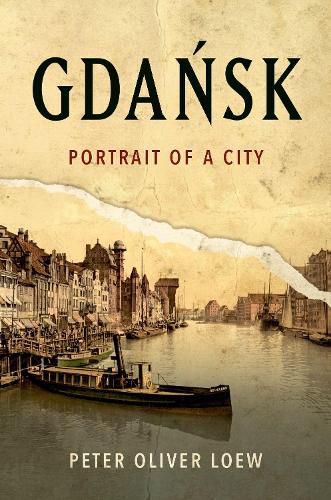Readings Newsletter
Become a Readings Member to make your shopping experience even easier.
Sign in or sign up for free!
You’re not far away from qualifying for FREE standard shipping within Australia
You’ve qualified for FREE standard shipping within Australia
The cart is loading…






It was where World War II began on September 1, 1939. Its wartime experience was immortalized in Guenter Grasss The Tin Drum. Later it attracted worldwide attention as the site where workers strikes led by Lech Walesa and the ensuing Solidarity movement led to the fall of Communism in Eastern Europe. Proud Hanseatic port, heart of the Baltic Sea trade, twice a "Free City," present-day liberal, cosmopolitan center: Gda'nsk's story between Germany and Poland is rich and fascinating. As Peter Oliver Loew colorfully shows, Gda'nsk, also known as Danzig, is incomparable not only because of its recent past but also in how it has so uniquely embodied the tensions of the European continent over the last millennium. Situated geographically and culturally within these tensions, the city has developed a fascinating identity amid frequent conflict and shifting national affiliations. From prehistoric amber workers to early Slavic dukes, the conquest of the Teutonic Order, and submission to the Polish crown, Gda'nsk's development led to a remarkable flowering. Around 1650, no city between Moscow and Amsterdam was bigger or wealthier. As Poland's decline culminated with the Partitions of Poland, the city ultimately found itself annexed into Prussia. The destruction of 1945 brought an almost entirely new Polish population, who rebuilt the historic center, now part of the reconstituted Polish state. Through each historical rupture, and despite the efforts of distant courts and capitals to rewrite its history, Gda'nsk has maintained--or sometimes rediscovered--a connection to its own past. Today the port city on the Vistula once again thrives, drawing strength from its diversity and history. Drawing on the latest research of German and Polish historians, Peter Oliver Loew vividly portrays the politics, economy, society, culture, and everyday life of a European city par excellence.
$9.00 standard shipping within Australia
FREE standard shipping within Australia for orders over $100.00
Express & International shipping calculated at checkout
Stock availability can be subject to change without notice. We recommend calling the shop or contacting our online team to check availability of low stock items. Please see our Shopping Online page for more details.
It was where World War II began on September 1, 1939. Its wartime experience was immortalized in Guenter Grasss The Tin Drum. Later it attracted worldwide attention as the site where workers strikes led by Lech Walesa and the ensuing Solidarity movement led to the fall of Communism in Eastern Europe. Proud Hanseatic port, heart of the Baltic Sea trade, twice a "Free City," present-day liberal, cosmopolitan center: Gda'nsk's story between Germany and Poland is rich and fascinating. As Peter Oliver Loew colorfully shows, Gda'nsk, also known as Danzig, is incomparable not only because of its recent past but also in how it has so uniquely embodied the tensions of the European continent over the last millennium. Situated geographically and culturally within these tensions, the city has developed a fascinating identity amid frequent conflict and shifting national affiliations. From prehistoric amber workers to early Slavic dukes, the conquest of the Teutonic Order, and submission to the Polish crown, Gda'nsk's development led to a remarkable flowering. Around 1650, no city between Moscow and Amsterdam was bigger or wealthier. As Poland's decline culminated with the Partitions of Poland, the city ultimately found itself annexed into Prussia. The destruction of 1945 brought an almost entirely new Polish population, who rebuilt the historic center, now part of the reconstituted Polish state. Through each historical rupture, and despite the efforts of distant courts and capitals to rewrite its history, Gda'nsk has maintained--or sometimes rediscovered--a connection to its own past. Today the port city on the Vistula once again thrives, drawing strength from its diversity and history. Drawing on the latest research of German and Polish historians, Peter Oliver Loew vividly portrays the politics, economy, society, culture, and everyday life of a European city par excellence.